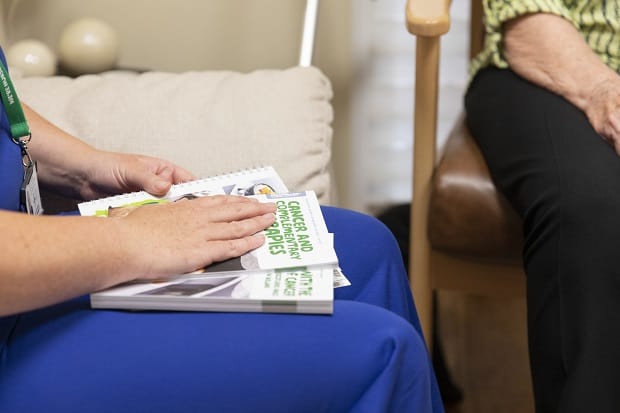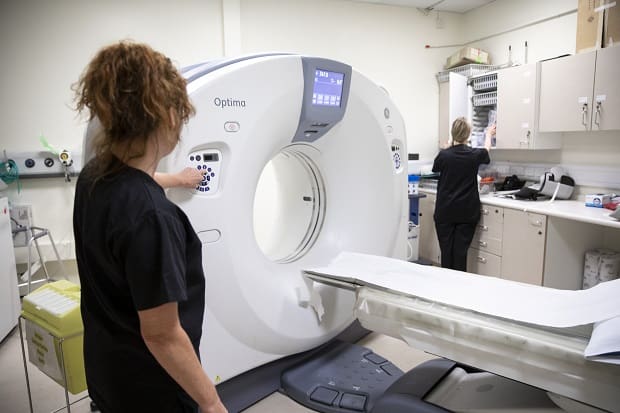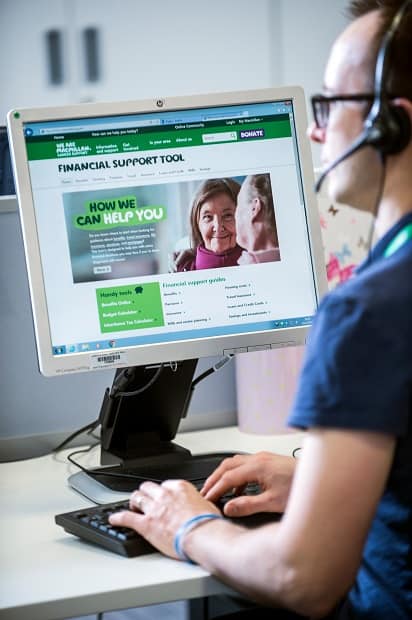
Written by Sharon Middleton, Macmillan Partnership Manager for Kent and Medway.
The start of 2021 is proving to be an acutely challenging time for people with cancer, the NHS and for cancer care. Indeed, it’s clear that – in Kent as across the country – this is the most worrying time in recent history to get a cancer diagnosis.
At Macmillan, people are calling our Support Line on 0808 808 00 00 every day to tell us about the heightened anxiety, loneliness and distress they are feeling.
In Thanet alone, recent Macmillan analysis suggests dozens of people are missing a cancer diagnosis they would otherwise have received, because of the impact of the pandemic.
We know that people with potentially worrying symptoms – such as an unexplained new lump, a cough that doesn’t go away or a change in bowel habits – are more reluctant to seek medical attention because they don’t want to burden the NHS or they are worried about catching Covid-19.
But GPs across Thanet are open if you are worried about possible cancer symptoms, and screening and other vital tests have resumed in a Covid-safe way. The NHS is still here for you.
We know doctors and nurses are working in unspeakably difficult conditions and are having to make tough decisions every day. Healthcare professionals are doing everything they can to keep cancer care on track, but we also know that some treatment – operations, for example – are being cancelled or postponed because essential services such as ITU are full of seriously ill people with Covid-19.

What is absolutely vital is that if there are changes to treatment plans, these must involve the person living with cancer and be communicated clearly.
Although some changes may be needed for treatment plans, this is not the case everywhere or for all treatments or tests. Healthcare professionals are doing everything they can to make hospitals a safe environment so it’s really important that people with cancer who have been invited for tests or treatment do attend.
At least 150,000 people have been newly diagnosed with cancer in the UK since March, with many having to hear this devastating news for the first time with no one by their side, due to Covid-19 restrictions.
At Macmillan, we’re encouraging anyone affected by cancer to make use of our round-the-clock support in this crisis. On our support line – open seven days a week on 0808 808 00 00 – specially trained cancer nurses and counsellors are there for anyone affected by or worried about cancer, every day of the week. They can provide comprehensive information and advice about their care and treatment options, as well as financial and emotional support, to help people with cancer cope with the additional strain of the coronavirus pandemic.
Comprehensive cancer information and support, including our latest guidance on the impact of coronavirus on cancer care is also available on www.macmillan.org.uk and our online community is there to provide invaluable emotional and peer support.

We know that people are really struggling, and emotions are heightened. We’re hearing from people every day who are feeling incredibly isolated, who are too scared to go outside because of their vulnerability to coronavirus and who have found receiving a diagnosis and going through treatment without loved ones by their side really distressing. For many, this pandemic feels like the worst possible Groundhog Day. We want them to know that they aren’t alone.
Macmillan’s specially trained teams are on hand, every day, to provide support – answering, explaining and giving people time and space to come to terms with whatever they are going through. Our experts can even help with financial or welfare guidance or provide practical answers to day-to-day questions.
We are doing whatever it takes to make sure our vital support continues to be available. We urge the people of Thanet to do their bit to reduce the spread of coronavirus, which will in turn relieve pressure on the NHS.

